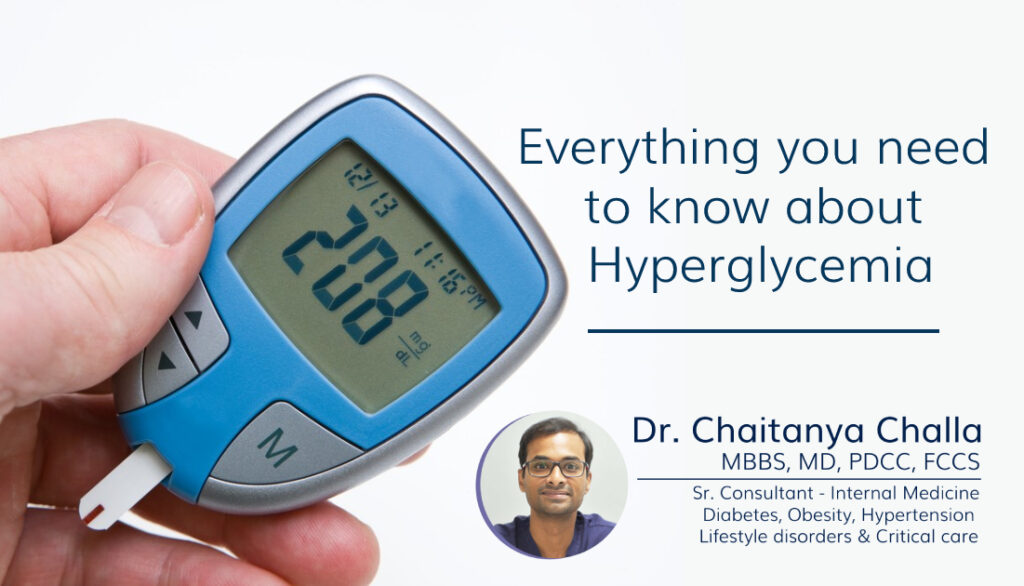
Hyperglycemia is the medical term for high blood sugar. This is a condition that frequently influences individuals who have diabetes. It happens when the body either has too little insulin or when can’t utilize insulin appropriately to transform glucose into energy. This implies, there’s an over the top measure of sugar flowing in the blood plasma.
Each cell in the human body needs glucose for energy. Glucose is produced through various metabolic processes in the body and is supplied to the cells through blood. Insulin, a hormone, makes your cells absorb glucose from the blood. When you have too little insulin or non-functional insulin, the cells cannot get enough energy for their normal functions. Due to lack of energy, the liver starts producing more glucose, which the body cannot utilize. Eventually, the glucose concentrations become too high in your blood, and altogether this condition is known as hyperglycemia.
Symptoms:
Many people don’t notice the symptoms until blood sugar levels are dangerously high or other complications develop. If you’ve had diabetes for a long time, you may not experience symptoms until your blood sugar levels have been high for days or weeks. Some symptoms to look out for include:
- Headaches
- Very frequent urination
- Drowsiness
- Fatigue
- Weight loss
- Fruit smell on child’s breath
- Fast breathing
- Warm, dry skin
- Vomiting
Causes:
Hyperglycemia happens either when your body does not have enough insulin, or when your body is not using insulin correctly. There are a variety of things that can lead to this, including:
- Inadequate insulin dosing
- Insulin resistance
- Eating more than planned
- Not exercising as much as planned or inactivity
- cold, flu
- stress
Treatment:
It is important to treat the symptoms of hyperglycemia promptly to prevent complications from diabetes. Signs are hard to identify, but self-monitoring and early treatment lowers these risks and improves the quality of life. For hyperglycemia specialist (Dr. Chaitanya Challa) consultation call: +91 +91 7901418181






